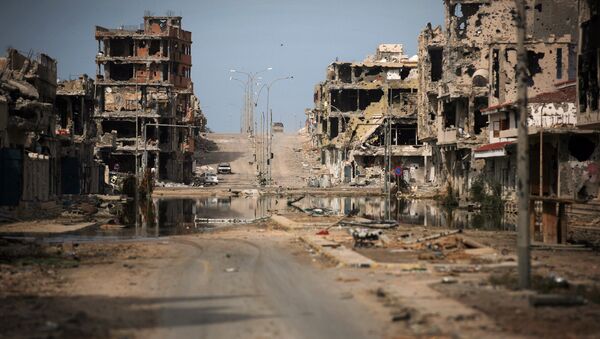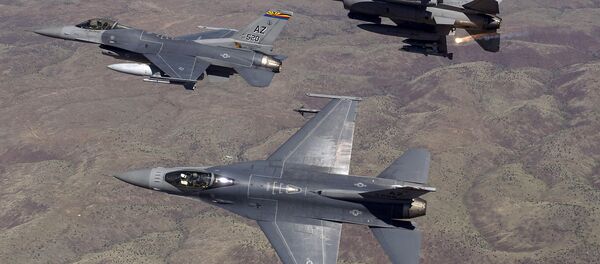"Obviously we’ve [the West] been propping up the [Libyan] Government of National Accord (GNA), after eighteen months of UN negotiations, the West very much wanted to have a 'unity' government which would invite them to help in the fight against ISIS," Pack, a Libyan researcher who runs the website EyeonISISinLibya.com, told Radio Sputnik.
That appears to be exactly what’s happened, as US President Barack Obama announced on Monday the creation of a 30-day airstrike mission, conducted at the behest of the GNA.
"Doing a few airstrikes doesn’t represent a meaningful escalation. Rather, you could say, the West is already quite involved in this fight anyway."
At least seven airstrikes have been carried out this week.
While the US is committed to providing external support to the GNA government, it seems unlikely that the interim government will be able to take back the Mediterranean coastline, currently under the control of militant groups.
"It doesn’t seem possible that the GNA would begin to push forward to Benghazi. They haven’t been able to take Sirte, and they won’t be able to for many weeks if not months. The battle is entirely stalemated," Pack says.
"And moreover, in Benghazi, [Khalifa] Haftar, who is the general of the opposing government, the House of Representatives government, is fighting against the Islamists there."
Complicating the matter is that the US is backing different forces than its French and Italian allies
"Since 2014, the US and the UK have been more inclined to support the Tripoli-based factions, in particular the Misratans, and the French and the Italians…have been more likely to provide assistance to Haftar."
The new airstrike campaign is legal under international law, given that the GNA is Libya’s UN-recognized government.
"Keep in mind that the sovereign and internationally recognized government…invited the US to conduct these airstrikes. That’s part of the reason that the GNA was set up, precisely to make that invitation in a way that is legally binding under international law."




